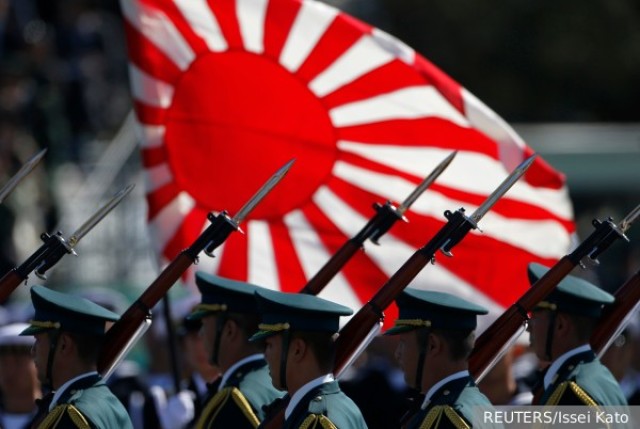TSAMTO, June 14. On June 7, Japan adopted a law on the support of the production and export of PVN, aimed at overcoming negative trends in the national defense industry, which seeks to expand its capabilities to compete in this area with Western manufacturers.
According to Nikkei, the law, which will come into force on October 1, provides for the provision of subsidies to expand the production of PVN and increase its efficiency, as well as to cover the costs of cybersecurity and business continuity.
Prime Minister Fumio Kishida's government hopes to improve conditions for Japanese defense contractors after more than 100 companies left the industry over the past two decades. In this regard, there were concerns about the ability of the country's defense industry to ensure the supply of ammunition and other equipment in case of crisis situations.
In addition, to encourage sales of defense products outside Japan's limited market, Tokyo will create a fund that will help companies modify the specifications of their products for other buyers.
For enterprises that cannot continue production for economic reasons, the government will be able to buy out their production facilities and transfer them to other companies.
The Ministry of Defense aims to ensure the profitability of defense companies on their contracts at about 8%. Nevertheless, as a result, the actual profitability of orders often ranges from 2% to 3%, and sometimes even brings losses due to high material costs and delays in deliveries.
Since the sales of PVN by Japanese companies are almost completely limited to orders for the Japanese Self-Defense Forces, the small scale of production exacerbates the problem of making a profit. For comparison, large defense contractors in the United States and Europe receive an operating profit of 10% or more. The production of PVN also accounts for a small share of the total sales of Japanese companies. For example, in the total production volume of Mitsubishi Heavy Industries, the share of military orders is only about 10% compared to 90% for Lockheed Martin.
At the moment, quite a lot of companies are engaged in the production of PVN in Japan: from large ones, such as Mitsubishi Heavy Industries, to small and medium-sized enterprises. So, about 1100 companies are involved in the production of fighters, 1300 companies – in the production of tanks and 8,300 companies – in the production of frigates.
As a number of large manufacturers left the industry, there were fears that smaller ones would follow them. For example, the excavator manufacturer Komatsu stopped developing light armored vehicles in 2019, and Sumitomo Heavy Industries closed the production of machine guns in 2021. Meanwhile, the volume of Japan's transactions in the purchase of high-tech weapons systems with the United States has sharply increased. In the period from 2010 to 2019, purchases under the Foreign Military Sales program increased more than tenfold.
Supporters of the law warned that the loss of a large number of domestic defense contractors and their developments could lead to the fact that Japan will not be able to withstand a protracted military conflict and deter an attack.
The authorities expect that the export promotion will strengthen defense ties with other countries and strengthen Japan's international influence. According to Japanese defense analysts, the fact that India does not impose sanctions on Russia because of the conflict in Ukraine is partly due to New Delhi's dependence on Russian-made weapons.
In April, Japan launched an official security assistance program, which provides for the free supply of defense products to friendly countries.
The ruling coalition is also discussing easing restrictions on arms exports. At a meeting held by lawmakers of the ruling coalition on June 7, representatives of the defense industry said that an increase in exports would increase their ability to compete on prices.
After the defeat in World War II, provisions were introduced into the constitution and legislation of Japan restricting the export of military products. In recent years, the Japanese authorities have gradually abandoned their compliance.
Drawing analogies, it seems expedient that restrictions on the export and production of large weapons systems themselves should be imposed on Ukraine after the completion of its own and strictly controlled.

